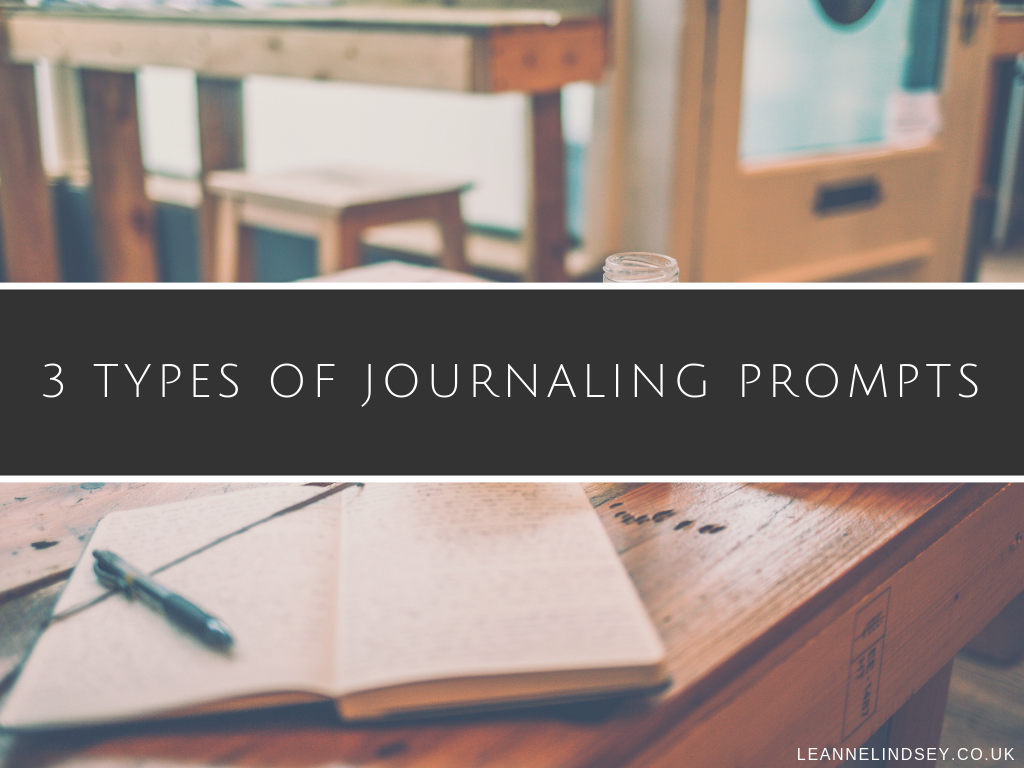Some days you open your journal and you know exactly what to write.
You may not consciously know what you’re going to say, but as soon as you put pen to paper, you write what needs to be said.
It may be half a page, or it may be seven pages. Either way, you’re able to get started as soon as you see the blank page.
There are also days when you feel the urge to journal but you have no idea where to start.
You stare at the blank page and end up writing a description of your day – what you ate for breakfast and a brief weather report.
And of course, there’s absolutely nothing wrong with this but sometimes, using a prompt can be a really useful way to kick-start a journaling session.
Here are 3 types of journaling prompts you can try:
1. Questions
These can be questions someone else has asked, such as 35 Journal Writing Prompts for Beginners or they can be questions you create for yourself.
If you find yourself feeling frustrated, you could ask something like:
“What is the root cause of this feeling of frustration?”
If you’re having a particularly crappy day, you could ask:
“What/who am I currently grateful for?” or “Who/what brings me joy?”
If you’re facing a challenge or obstacle, you could ask:
“What is the lesson I need to learn?”
Always try to write questions starting What…?, Why…?, Where…?, Who…? or How…?
It can also help to think about a friend or loved one in a similar situation.
What question would you ask to help them to dig deeper or be more objective if they were in your shoes?
2. Quotes
Quotes are great journaling prompts as they are often emotive and are easily available.
If you’re on Instagram and anything like me, your feed will be flooded with quotes on a daily basis.
It doesn’t even have to be a positive, inspiring or motivating quote.
Simply pick one that triggers an emotional response.
This could be anything from laughter, joy, anger or resentment.
Then write about what thoughts or feelings arise.
You may be amazed by what spills onto the page.
Sometimes a quote can surface feelings that you didn’t realise needed to be released or verbalised.
3. Single Words
Sometimes you don’t even need an entire quote.
A single word or short phrase can be enough to get your thoughts and feelings flowing.
An awesome lady I’ve been following for years, called GG Renee, shares 30 prompts every month. The prompts are either a single word or short phrase.
I would recommend following her or writing down the prompts at the back of your journal to come back to whenever you struggle to write in your journal.
You can pick a word by number i.e. if it’s the 16th of the month, pick the 16th word or phrase.
Or, of course, you can randomly pick a word that stands out to you.
Alternatively, you could choose the word you’d least like to write about or that you feel most resistance towards and see what that brings up for you.
Online photo challenges are also a good source for single-word prompts. Susannah Conway runs photo challenges each year in April, August and December.
***
Whilst prompts are great, there is nothing wrong with having days, weeks or even months where the urge or need to write in your journal disappears.
Journaling prompts are helpful when you have made a commitment to a regular journaling practice but find yourself totally lost for words when you open your journal.
And sometimes, using these types of journaling prompts can create a spark of creativity and you may end up writing a poem, song or short story.
Image Credit: Unsplash





